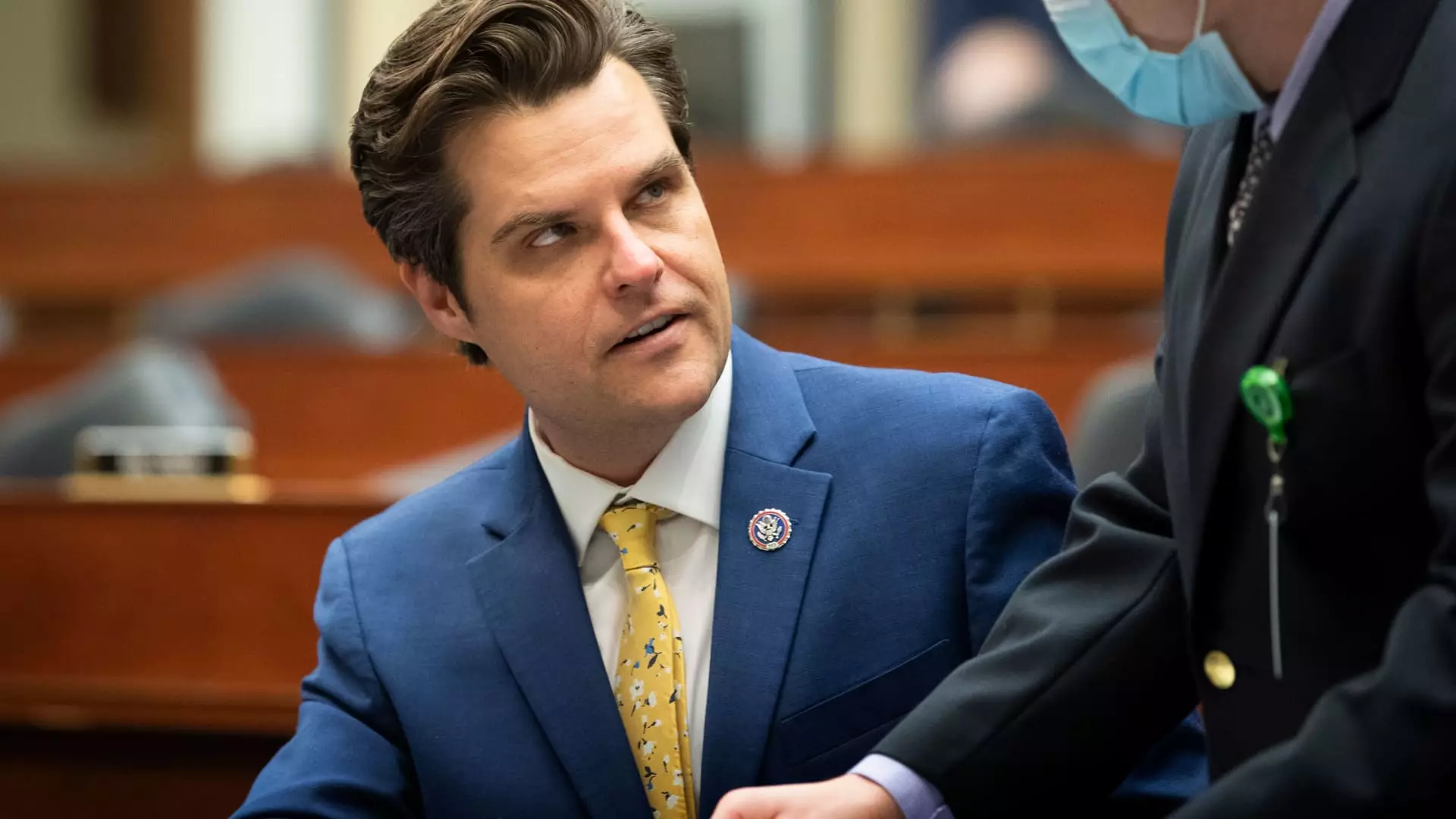The recent actions of the House Ethics Committee regarding former Rep. Matt Gaetz signify a critical juncture in congressional accountability. After a secret vote, the Committee decided to release a report detailing its findings on allegations of sexual misconduct and drug use against Gaetz. This decision, coming close to the end of the congressional session, raises questions not only about Gaetz’s actions but also about the ethical responsibilities of congressional members in the face of serious allegations.
Historically, the Ethics Committee has operated cautiously, typically opting for a more restrained approach when dealing with potential misconduct. The release of the Gaetz report, anticipated within days of the Committee’s vote, indicates a decisive shift in this strategy. Two sources connected to NBC News suggest that the Committee’s willingness to unveil its findings may stem from the desire for transparency, reflecting an urgent need to address unethical conduct within political ranks, even against a backdrop of resignation.
In the wake of the Committee’s decision, Gaetz vehemently denied the allegations against him, insisting that claims of inappropriate sexual relations, particularly with minors, are baseless. He took to social media, stating confidently that any claim would be dismantled in court, which he argued is why no legal actions have been pursued against him. Moreover, Gaetz characterized his past behavior—marked by partying and womanizing—as regrettable yet non-criminal, indicating a personal transformation that he believes absolves him of past actions.
This reaction encapsulates a larger trend seen in political discourse whereby public figures deflect serious allegations through strategic communication. Gaetz’s framing of his lifestyle may resonate with some of his supporters; however, it simultaneously raises significant ethical questions about his conduct during his tenure in Congress. In a political environment increasingly scrutinized for personal integrity, such defenses may not be adequate to regain the public’s trust.
The Ethics Committee’s decision to move ahead with the Gaetz report is notable, especially considering that they previously stalled its release due to his resignation. Historically, reports have been made public after resignations, as seen with former Rep. Bill Boner in 1987. This precedent suggests that the Committee’s current stance might be more about maintaining accountability than assuaging the tensions of past leadership dynamics.
The argument proposed by House Speaker Mike Johnson, cautioning against the release of findings on a former member, treads a fine line between protecting individual rights and the public’s right to know. For many, the intent behind releasing such a report is to ensure that public officials are held accountable even after they leave office, marking a crucial step towards dismantling a culture of impunity that has plagued Washington.
As the House Ethics Committee prepares to make its report available, the implications extend far beyond the individual case of Matt Gaetz. The manner in which this situation is handled may set benchmarks for future investigations. For members of Congress, the risks associated with unethical behavior may become more tangible, fostering a culture where accountability is paramount. Conversely, how the Committee manages its findings will also influence public perception of congressional oversight.
Moreover, Gaetz’s ongoing narrative, maintaining innocence while exposing the efforts of the Department of Justice that concluded without charges, speaks volumes about the politics of victimhood. By reframing his legal challenges as politically motivated attacks, Gaetz cleverly positions himself as a martyr in the eyes of his supporters, complicating the narrative around accountability.
The upcoming release of the House Ethics Committee report regarding Matt Gaetz ought to be seen as a significant moment in the ongoing dialogue about ethics in politics. While Gaetz fervently denies any wrongdoing, the investigation itself serves as a reminder of the expectations imposed on public figures. With growing scrutiny, it is imperative that congressional bodies uphold stringent ethical standards. Whether the release of the report leads to broader changes in congressional ethics or not, it underscores the necessity for vigilance and integrity in public service. As voters and citizens, a commitment to demanding transparency and accountability will be pivotal in shaping a more ethical political landscape.


Leave a Reply